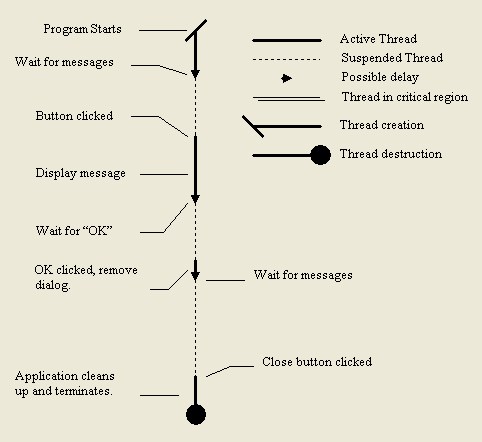Multi Threading in Delphi

What are threads? and why we use them? Earlier days of programming all programs were single threaded and single tasking in which your program will ran exclusively on the machine or not at all. With increasingly sophisticated applications and increasing demands on personal computers, now multiprocessing and multithreading operating systems are available. Multithreading on computer programming was mainly required for better performance and usability. So first lets go about Process , Process is a program that runs on a system and uses system resources like CPU, Memory etc. And every process has a main thread. In a Process many actions can be performed one by one on fast in fast perform order. And Thread is generally used to perform several set of actions at once in situations like some actions may cause a considerable delay but during that period the program should be able to perform other actions too. For an example in windows explorer we are copying ...


